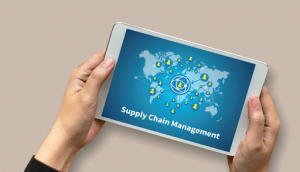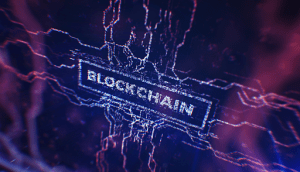The latest technological developments and massive manufacturing growth will likely impact the supply chain significantly globally. For example, artificial intelligence dominates the market and has taken over quality control and the Internet of Things and other devices to keep a tab on manufacturing and maintenance. However, innovation has also disrupted the supply chains historically
What is a Blockchain?
Blockchains are ideally a type of distributed ledger technology that holds a lot of digital information or exchanges in a way that makes them a must-have. The technology has helped companies reduce inefficiencies and save a lot of money by completing electronic information. Blockchain technology is a broadcast peer-to-peer network that features different interconnected computers known as the nods. These nodes solve all the equations to check and validate the transaction for consistency. The transaction, once validated, is grouped with other transactions. It helps in creating a block of information for the Ledger. Companies can use blockchain technology to keep track of transactions that make it possible to share personal information documents and cryptocurrencies. It is pretty challenging to corrupt as the Ledger is fully distributed across the network.

What is a Supply Chain?
Ideally, all the products that reach the end user represent the effort of different organisations and stakeholders. Collectively all of them form a supply chain. Companies within a supply chain are generally linked through physical and information flows. The physical flows feature transformation movement and storage of materials and goods. The information flow mainly includes the coordination between various partners to control the day-to-day flow of goods and materials up and down the supply chain. However, it also features long-term planning. The management of the product development procurement, sourcing logistics, and production of raw materials and finished goods from one place to another forms the supply chain. Therefore, effective supply change management can quickly lower the costs and speed up the production cycle.
How can blockchain and supply chain become a perfect union?
Blockchain technology provides efficiency and transparency to the supply chain. Here’s a brief explanation on how it helps in the functioning of blockchain and supply chain in perfect synergy:
Efficiency
Blockchain makes the supply chains globally more efficient as it allows the companies to complete the transactions without 3rd parties directly. It also facilitates better integration of the financial and logistics services, allowing greater collaboration among the stakeholders. Furthermore, the payment solutions are integrated to reduce the time between ordering and payment processing, ensuring the perfect movement of products.
Besides that, blockchain and smart contracts mainly help companies improve their compliance and minimise legal fees. The companies can easily integrate the blockchain with radio frequency identification that relies on electromagnetic fields to identify and keep track of items.
Transparency
Records on the blockchain cannot be erased by making a perfect transfer in the supply chain. Additionally, all the steps in the supply chain are recorded securely, which means that the logistics issues can be tracked easily. It goes the same for sourcing elements of raw materials, which can be traced back to their origin. It increases accountability and transparency while mitigating the risk of illegal activity.
Benefits of blockchain in supply chain

Blockchain offers significant benefits to the supply chain. Here’s the brief on how it helps:
Better efficiency
Blockchain relies on a shared network infrastructure; the supply chain that uses blockchain technology enhances communication and collaboration for almost all parties. The traceability and transparency can help you eliminate the waste of other duplicate orders besides accounts payable headaches like invoice fraud. The parties are encouraged to meet their agreed-upon obligations thanks to the contract compliance contingencies. There is complete transparency of financial information, and performance improves for small companies while lowering processing times and reducing risk and uncertainty.
Sustainable sourcing
The traceability of the blockchain makes it seamless to verify where the materials and goods come from and where they go while they travel from the supply chain and keep an eye on who has access to it.
Better savings
The reductions in the stock loss and the gains in efficiency are some of the significant sources of cost savings when blockchain is implemented in the supply chain. The distributed network sharing resources. The distributed network sharing resources and digital transactions also help you get rid of paper-based workflows. Going paperless enables you to reduce the material cost and get rid of other expenses related to the storage and labour required to process and manage the documents physically.
Better functionality
The blockchain is easily integrated into other technologies like process automation and the Internet of Things. In addition, smart sensors improve efficiency, visibility, and accuracy throughout the supply chain.
Requirements of Blockchain for Success:

Data exchange
The data needs to be exchanged amid unrelated parties where the blockchain plays a crucial role.
Trusted partners
The blockchain requires updates that must be made by different unrelated parties that you wish to be confident so you can trust the partners in the project.
Shared value
If the project offers value to all the partners, they will be incentivised to adopt all the technology and processes to do this workout.
Integrated
Blockchain must be integrated with the existing tech stack to make the most of it.
Defined data standards
A well-defined process and consistent data standards will keep the data accuracy for all partners. It will also align with the current standard, including electronic data interchange. Blockchain technology allows efficient ownership and licensing. Verifying past ownership through standardised license procedures is essential for different industries. Furthermore, blockchain can be used to accurately license product services and software through automated smart contract payments.
The blockchain provides consensus, which means there is no dispute in the chain in terms of transactions by design. All the companies on the chain are likely to have a similar version of the Ledger that benefits from keeping a track record of all the transactions. Blockchain can easily track the progression of assets and also record the information besides showing the previous transactions. Hence blockchain and supply chain must go hand in hand.

